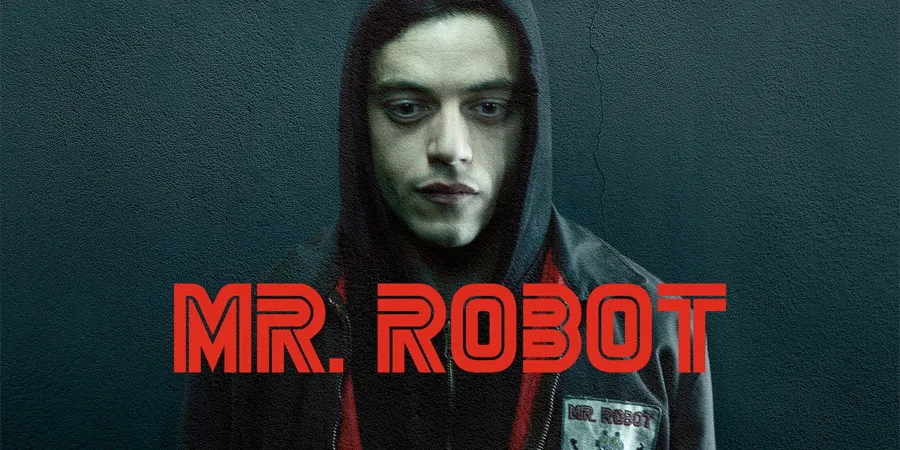To continue the posts on my favorite TV-series, I'd like look at the show that had been recommended to me by various Hivers for years (even before it became Hive): Mr. Robot. Not surprisingly, this show is full of computers, people who know all their ins and outs really well, are aware of all the potential freedom this infrastructure could provide, as well as the debilitating mass manipulation it is used for instead. How could such a show not be popular among blockchain enthusiasts? Mr. Robot was aired between 2015 and 2019 on the good old USA Network, which hasn't affectted its quality one bit.
From Pointy Cynicism to Clinical Depression
One of the things that got me hooked immediately on Mr. Robot was the monologue of Elliot, the main protagonist / narrator, an IT engineer working for a cybersecurity firm by day, and cyber vigilante at night. His narration shows his deep disdain for society, the way consumers willingly subject themselves to manipulation by fear, and how ruthless companies exploit this in order to gain money and power.
At first, it seems like this series has all the ingredients to a great hacker story. Soon, however, the viewer is faced with some other issues: mental health. As the story progresses, the narration starts showing traits of psychological disorders. It is not entirely clear what problems Elliot is actually suffering from, but it includes signs of social anxiety, clinical depression, delusions, schizophrenia, and dissociative identity disorder. The protagonist is also aware of these problems, and throughout the show he tries to address and treat them, but the way they interact with his perception of the world, and the subsequent progression of the story, what ends up happening is an exacerbation of the outside and inside issues.
Rising Up Against Oppression in the Cybersphere
While our hero is struggling with his inner demons inside his mind, the story developing outside is by no means any less disturbing. Being recruited by a mysterious Mr. Robot, played by none other than Christian Slater and his group of insurrectionary hacktivists, Elliot soon finds himself on a mission to attack major credit card companies in order to erase consumer debt, which makes our world go around. Of course, things don't go as planned at all, and eventually Elliot, together with his audience, find themselves past beyond good and evil. That's when everything starts coming apart even further...
Great Inspirations, and Impeccable Execution
Mr. Robot can look back on a number of interesting films cited as its inspiration, including Fight Club, Taxi Driver, A Clockwork Orange, and The Matrix, not only with the mental disorders it features, but also the anti-consumerist and anti-establishment attitude of its characters.
The biggest Achilles-heel of hacker stories is always the question of how realistically it portrays its hacking. Though I probably could care less, due to my limited knowledge about this subject, I can see how someone more knowledgeable would get annoyed by unrealistic hacking. For this reason, Mr. Robot went completely out of their way to seek the advice of the highest echelon, both in the areas of IT, as well as psychology.
As a result, all four seasons received high critical acclaim, and I can also recommend the series among the best ones I know. Admittedly, it may not be for everyone, but if you like computers, are aware (and maybe not entirely optimistic) of the ongoing changes of technology and society, and if you find mental disorders fascinating, this show may be just right for you. Why don't you take a look at the trailer here:
Take a Look at the Previous Posts in my Binge On This Series:
Das Boot: A Real German WWII Series
Black Sails: Pirate Lore Galore
Twelve Monkeys: Time Travel and Pandemic
The DocsMX 2020 Film Festival




